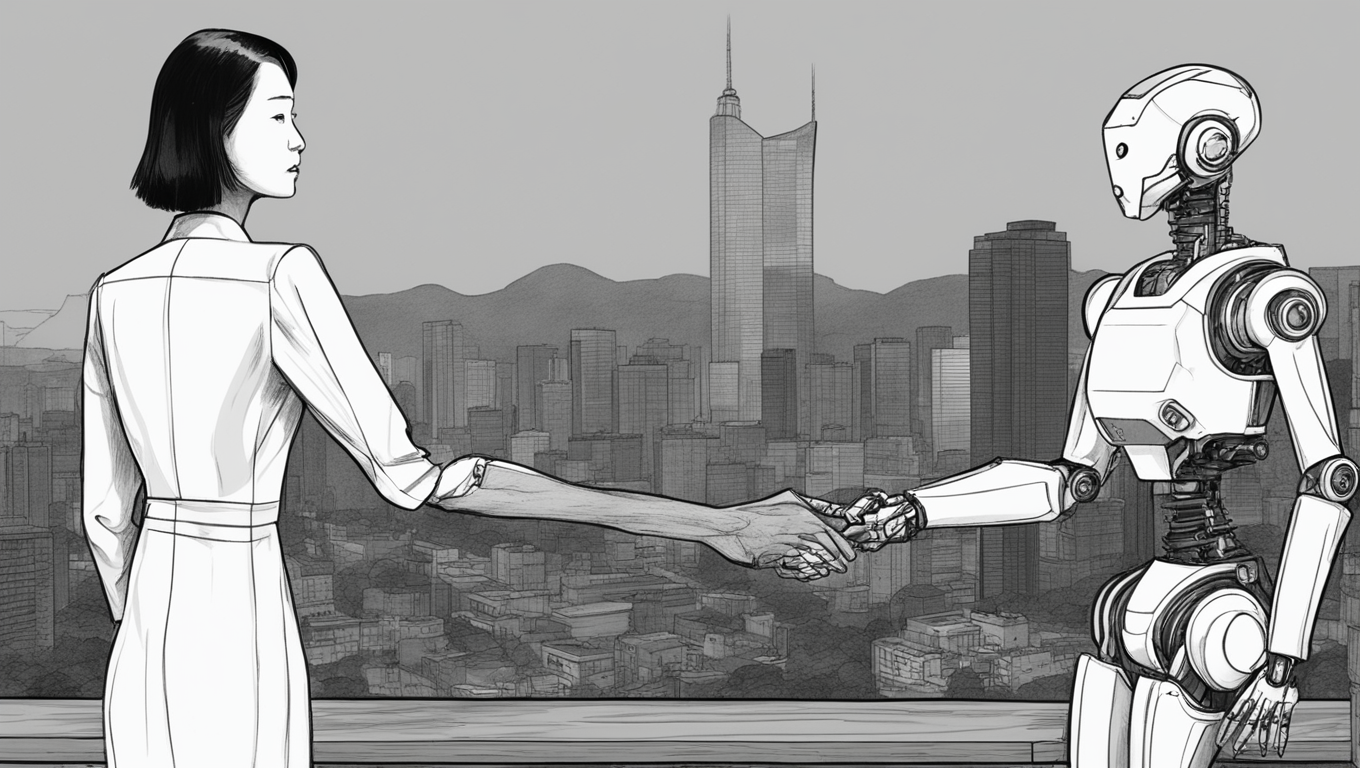South Korea is stepping into the spotlight once again as it hosts a mini-summit on the risks and regulation of artificial intelligence. This event follows the success of last year’s inaugural AI safety meeting in Britain, which brought together a diverse group of tech luminaries, researchers, and officials. The gathering in Seoul aims to build on the work started at the UK meeting, which was focused on addressing the threats posed by cutting-edge AI systems.
At the UK summit, participants engaged in discussions on AI regulation and safety. Key figures such as Tesla’s Elon Musk and OpenAI’s Sam Altman were present, along with political leaders like British Prime Minister Rishi Sunak. The UN General Assembly also made its first resolution on AI in March, supporting international efforts to ensure that this powerful technology benefits all nations while respecting human rights and ensuring safety.
Just a few weeks ago, the US and China held their first high-level talks on AI in Geneva, highlighting the urgency to address the risks associated with this rapidly evolving technology. Now, South Korea and the UK are joining forces to continue these important discussions.
The summit, taking place on May 21-22, is a joint venture between the South Korean and UK governments. On the first day, leaders, including South Korean President Yoon Suk Yeol and PM Rishi Sunak, will meet virtually. Global industry leaders have been invited to provide updates on how they are honoring the commitments made at the Bletchley summit to ensure the safety of their AI models.
The second day will feature a face-to-face meeting of digital ministers, hosted by South Korea’s Science Minister Lee Jong-ho and Britain’s Technology Secretary Michelle Donelan. These ministers will exchange best practices and develop action plans to shield society from potential negative impacts of AI, such as energy consumption, workforce disruption, and the spread of misinformation.
This virtual summit is seen as a placeholder until France hosts a full-scale, in-person edition. Representatives from the United States, China, Germany, France, and Spain will be present, along with companies like OpenAI, Google, Microsoft, and Anthropic.
However, concerns have been raised about the effectiveness of these summits. Lee Seong-yeob, a professor at Korea University, points out that despite the attendance of major countries like the US and China, the principles announced after the UK summit were not significantly different from those previously established by the UN and OECD. Reaching a consensus on AI regulation will be challenging due to the unique interests of each country and their varying stages of AI development.
The issue of AI safety requires a global perspective. Pioneering computer scientist Yoshua Bengio, one of the “godfathers of AI,” was appointed at the UK meeting to lead an expert panel that drafted a report on the state of AI safety. The interim version of this report, released prior to the Seoul summit, identified various risks associated with general-purpose AI, including its potential for malicious use, the spread of disinformation, and bias in areas like healthcare and finance.
Despite some skepticism, South Korea is eager to take the lead in formulating global governance and norms for AI. However, critics argue that the country’s AI infrastructure may not be advanced enough to fulfill this leadership role. Nevertheless, the summit presents a crucial opportunity for experts, industry leaders, and policymakers to come together and address the risks and regulation of artificial intelligence.





Use the share button below if you liked it.